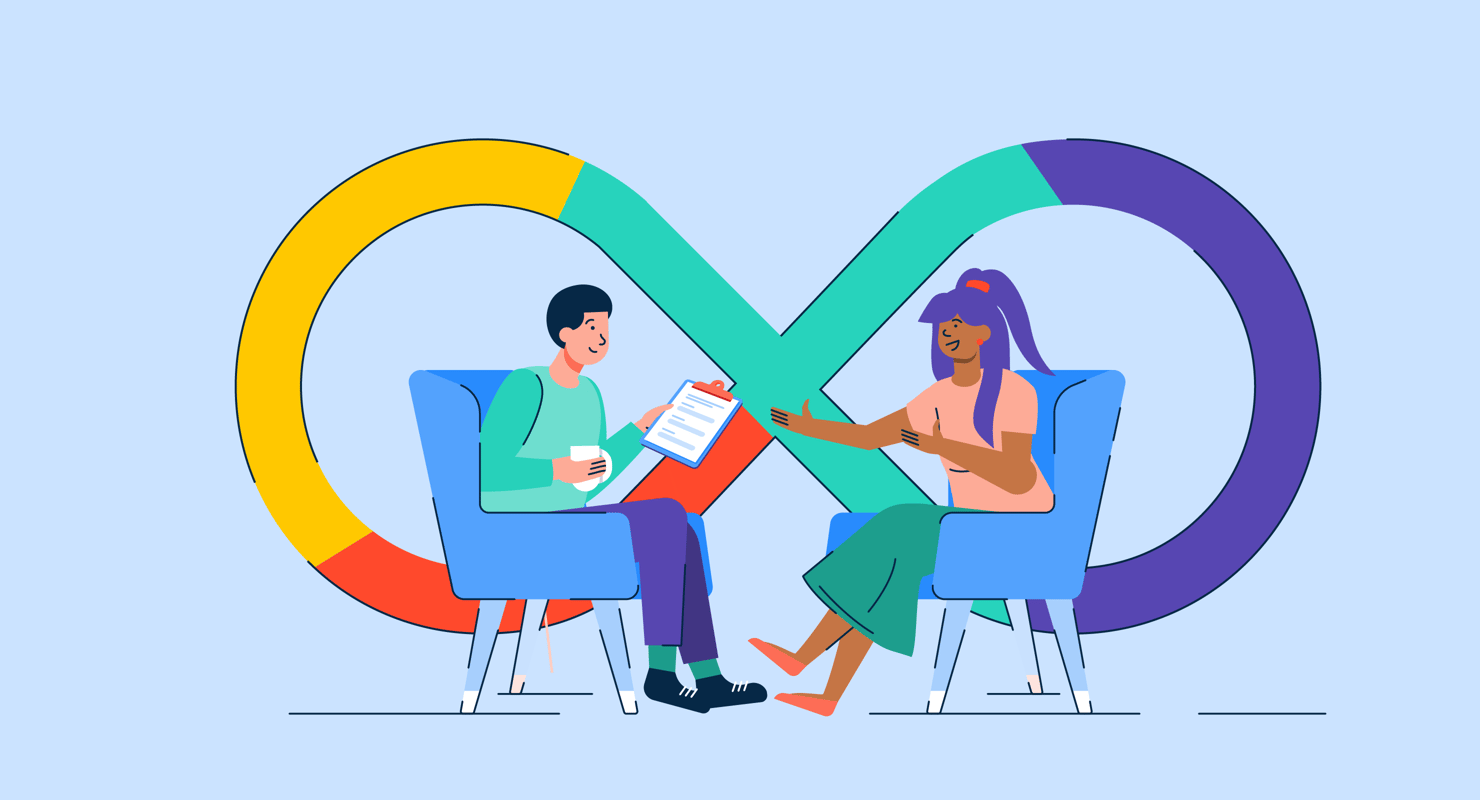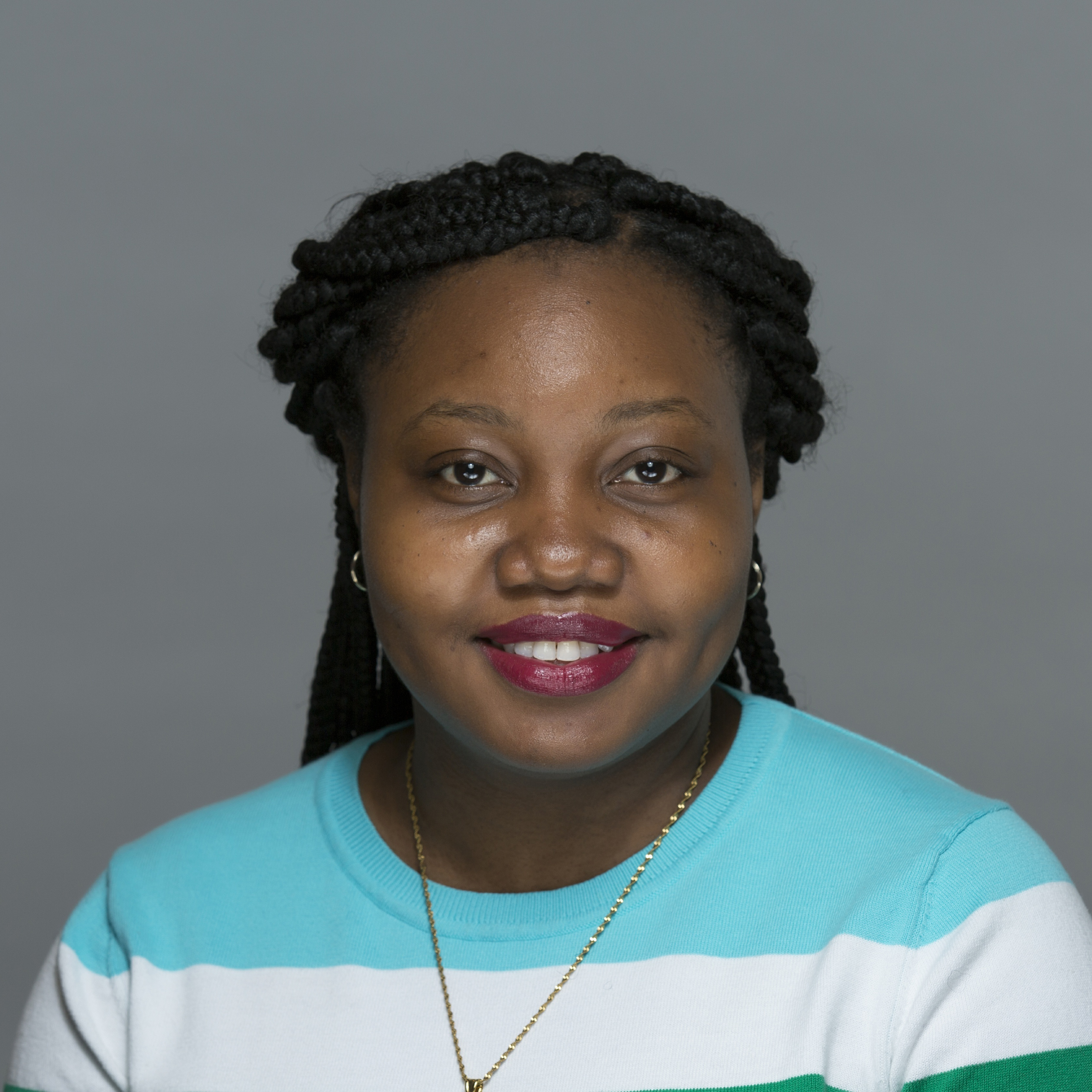In celebration of World Autism Month, I’m sharing my story with the hopes of shattering stereotypes, promoting understanding of autistic people, and, most importantly, showing how reframing neurodivergence can make the world a better place. In case you’re unfamiliar with the term, neurodivergence has been defined by Cleveland Clinic as a descriptor for “people whose brain differences affect how their brain works. That means they have different strengths and challenges from people whose brains don't have those differences.”
There are many stereotypes about autism and intelligence. The truth is that autistic people have a wide range of intelligence, just like other people. In fact, larger proportions of gifted and genius-level IQs are observed in autistic people compared to the general population. For me, I started speaking full sentences as a 1-year-old, my parents bought me roller coaster engineering books for Christmas when I was 5, and intelligence testing showed I had a 136 IQ.
If you asked me as a child what movies achieved the Big 5 at the Oscars, I could tell you, like an encyclopedia, that they were It Happened One Night, One Flew Over the Cuckoo’s Nest, and The Silence of the Lambs. This presentation of autism is referred to as hyperlexia, in which children acquire advanced language abilities rapidly.
While it seemed I was well ahead of developmental milestones, the other side of it was that I could not sleep without starting my nighttime routine at 9:09 p.m. exactly, being tucked in bed by my mom until I was in middle school, and having total darkness and silence. When I was either nervous or really happy, I would walk in circles or rock back and forth. I also struggled with basic skills like tying my shoes, cleaning up after myself, and emotion regulation.
Despite all of the obvious signs, I never stood a chance of being diagnosed with autism in the early 2000s because I didn’t exhibit what were considered traditional signs at that time — being nonverbal or stoically heterosexual — and I was academically gifted.
I eventually graduated from high school with top scores and went on to one of the best journalism schools in the country. After graduation, I received a job offer at a top advertising firm only two months after graduating. On the surface, this sounds like a kid who skated through life. However, these accomplishments and accolades hid the struggle on the inside—a struggle I endured until I was 27.
Despite my top grades and exam scores, I experienced school absences because I was so overloaded and didn’t have help on how to take care of my sensory needs. I was friendless in college because I had to leave parties due to loud noises and not knowing how to engage in conversations without offending people for reasons I could not yet recognize.
Once I entered the workforce, I left jobs after a year because masking who you are is only sustainable for so long. I was also regularly bullied for being a passionate high performer yet coming across as an eccentric professor-type of person.
The totality of these events in my school and work lives resigned me to the fact that I was defective in some way, inexorably different. Going back to my love of movies, I thought I was just going to be like Robin Williams’ character from Good Will Hunting, a brilliant yet reclusive pariah.
Rather than giving up, I started researching autism and frequenting the autism subreddits. This helped me understand who I was, see the reason why my life had been difficult, and most importantly, recognize that there was nothing wrong with me. On the contrary, I had been discriminated against, bullied, and marginalized for being autistic.
I started researching careers and industries that were great places for autistic people to work, and I read that technology was a safe haven for the nerdy neurodivergents, like me, who could hyperfocus on lines of code rather than be in meetings for hours. This is how I discovered G2 and how G2 became part of my journey toward self-actualization and advocacy for neurodivergent people.
I accepted a position as a market research analyst because I wanted to pursue a special interest of mine: data analysis. Within a few months of working at G2, I was already excelling and making waves at work. I stayed cautiously optimistic and got involved in as many projects as I wanted. I didn’t worry about “stepping on toes” and breaking neurotypical rules around entrepreneurship and ambition because G2 — and the tech industry as a whole — values out-of-the-box thinking and breaking convention. G2 has even supported me in pursuing my special interests with its tuition reimbursement program, which I’m using to get a Master's in Data Science at Loyola University Chicago.
After receiving an official autism diagnosis in June 2022, I started to slowly share my identity as a neurodivergent person with people at work. It was a terrifying experience, and I was constantly waiting for the other shoe to drop because of my past experiences. Instead, it led to me being appreciated more in my department. One of G2’s PEAK values is Authenticity, and it’s not just corporate fluff. It really is lived here, and I was encouraged to advocate for myself and other neurodivergents. For this reason, my coworkers Emily Malis Greathouse, Chantal Lopez, and I just launched the Divergent Abilities & Allies Employee Resource Group (ERG) to help make G2 a better place for all.
The goal of the Divergent Abilities & Allies ERG is to provide visibility and representation to those with visible or invisible physical health conditions, mental health diagnoses, or who are neurodivergent. We will accomplish this by creating community; promoting acceptance and celebration; recognizing the unique strengths that those with different abilities, diverse abilities, or disabilities bring to employment; and learning how systems of support can empower them to succeed.
For the month of April, I encourage you all to reflect on what images come to mind when you think of autism and thoughtfully consider if they help build a better world. By being more open and understanding, we as a society can help move people away from thinking that autism is a disorder that should be fixed with traumatic behavioral therapy towards an understanding that autism is a natural variation in humanity that should be accommodated and validated, much like sexual orientation and gender identity.
I also encourage you to join me in the fight for more inclusive workplaces and push for a society where employers empower rather than demoralize neurodivergent folks. What does this look like? It looks like the flexibility of remote and hybrid work, trusting employees to make work schedules that are right for them, flexible PTO for personal and health reasons, and comprehensive health and wellness benefits. G2 provides all of this, but this can’t be said of many employers outside of the tech industry. I hope more companies follow G2’s lead so neurodivergent people like me can thrive, grow, and offer our unique talents to the workforce.

 by Alanna Iwuh
by Alanna Iwuh
 by Folake Olatoye-Ojo
by Folake Olatoye-Ojo
 by Jenna Hopkins
by Jenna Hopkins